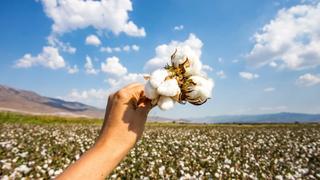Encouraged with a $1.5 million (Rs. 10 crore) funding recently, agri-tech firm Crofarm, a farm-to-business (F2B)) startup, plans to expand its technology-based supply chain operations from three cities now to 10 cities in the next one year.
The four-month-old firm, which procures produce directly from many of nearly 10,000 farmers it has networked access to, and delivers via faster transit to organised and unorganised retailers in Delhi-NCR, Mumbai and Bengaluru, would expand to all major cities across India, networking around one lakh farmers, Varun Khurana, Co-Founder and CEO, Crofarm, told BusinessLine .
He, however, declined to say more about fundraising at this stage.
“We aim to create a dependable supply chain—and eventually expand to a cold supply chain—across India that supports farmers and provides retailers with the freshest and affordable farm produce, mainly fruits and vegetables, in an efficient manner, said the IIT-Delhi alumnus. This would, evidently, eliminate the multi-layered middlemen and intermediaries and the antiquated system followed by the mandis, that shoot up the price at which the produce is sold to the consumer.
He said the Gurugram-based Crofarm’s does not undertake contract farming but procures produce at decent prices directly from farmers at collection points and delivers it to organised players like Big Bazaar, Reliance Retail, Grofers, Big Basket, Metro and Food Works, which are all its clients. “For this supply chain, we procure bigger vehicles from local organized transporters and deliver the produce directly to organized retailers. We also deliver produce at distribution points in smaller vehicles for unorganized players who control a whopping 90-95% of the total market.”
Incepted in May 2016 by serial entrepreneurs Prashant Jain and Varun Khurana, Crofarm’s revenues come from commission ranging from nearly 5% of the price in case of less perishables like potato and onions, to 15% of the price of green vegetables to 20-25% in case of fruits and exotics. He said Crofarm procures products with a longer shelf life from national sourcing zones and other products from regional sourcing zones.
Khurana said Crofarm’s work was made easier by the access the younger generation of farmers now have to technology such as 3-G and government initiatives like the Aadhar Card and Jan Dhan accounts. Penetration of smartphones and Aadhar have paved way for disruption in agriculture sector, making it easier for leveraging technology. “Now we get messages via social media, such as WhatsApp, about produce and prices.”
Agriculture, which employs the highest number of working hands, contributes 13% to the country’s GDP, worth a farm market of USD 250 billion. If India can prevent post-harvest loss of crops, at 20 million tons a year, it can feed the whole of Australia. Due to various constraints, mainly those of supply chain and multiple handling, India loses 10 per cent of its 200 million tons of crops, a substantial loss for a nation with 20% of its population being undernourished.






Comments
Comments have to be in English, and in full sentences. They cannot be abusive or personal. Please abide by our community guidelines for posting your comments.
We have migrated to a new commenting platform. If you are already a registered user of TheHindu Businessline and logged in, you may continue to engage with our articles. If you do not have an account please register and login to post comments. Users can access their older comments by logging into their accounts on Vuukle.